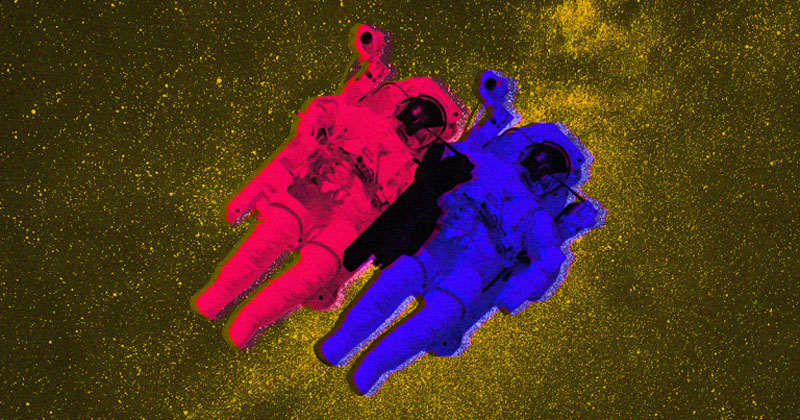NASA: genetic changes caused by space travel are temporary
- Transfer
For many years, NASA has been analyzing the health effects of space travel by comparing the twin astronauts Mark and Scott Kelly. From 2015 to 2016, Scott spent 340 days in orbit while Mark remained on Earth, giving scientists rare data on how a person’s life outside the planet affects his body. A study published in the journal Science shows that Scott experienced a series of genetic changes while he was in space. And surprisingly, most of them returned to their former state when he returned to Earth. This was reported by MIT Technology Review, providing researchers with valuable information as space agencies prepare for longer flights into space.

Over the past few years, NASA scientists have gradually released in the open press some information about the results of the study of the twins. The most surprising thing was that Scott in space at the genetic level turned on the active protection of the chromosome from aging.
This conclusion may lead to future research on how spaceflight can affect human longevity. Within six months after Scott returned to Earth, the elongated telomeres of Scott chromosomes returned to normal, while some new, shorter than usual, telomeres that formed after his return were preserved.
Previous astronaut studies have shown that long space travel can jeopardize their immune system. New results show that these changes are mostly temporary. Astronauts are quickly recovering, which is a promising event for the prospect of sending people to Mars.
“This is similar to how we first measured blood pressure,” said lead researcher Chris Mason in an interview with MIT Tech. "We did not know what the real reference numbers were until we started measuring more people."

Back and forth
Over the past few years, NASA scientists have gradually released in the open press some information about the results of the study of the twins. The most surprising thing was that Scott in space at the genetic level turned on the active protection of the chromosome from aging.
This conclusion may lead to future research on how spaceflight can affect human longevity. Within six months after Scott returned to Earth, the elongated telomeres of Scott chromosomes returned to normal, while some new, shorter than usual, telomeres that formed after his return were preserved.
Ready to run
Previous astronaut studies have shown that long space travel can jeopardize their immune system. New results show that these changes are mostly temporary. Astronauts are quickly recovering, which is a promising event for the prospect of sending people to Mars.
“This is similar to how we first measured blood pressure,” said lead researcher Chris Mason in an interview with MIT Tech. "We did not know what the real reference numbers were until we started measuring more people."
